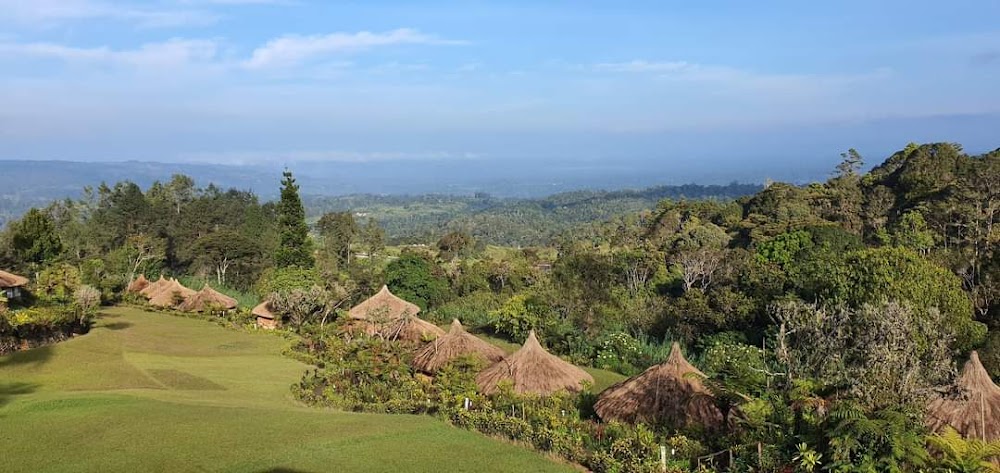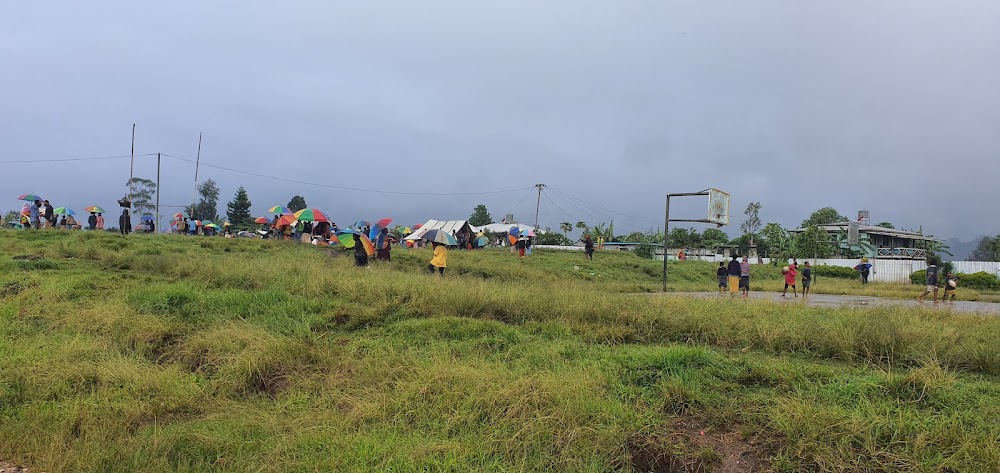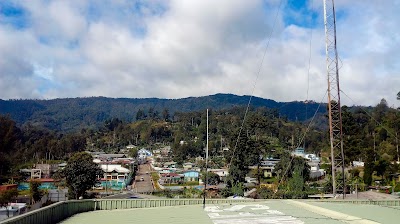Tari Basin (Tari Basin)
Overview
In the lush, green heartland of Hela Province in Papua New Guinea lies a captivating destination known as the **Tari Basin**. Renowned for its stunning natural beauty and rich cultural heritage, this area boasts a story that intricately intertwines with the daily lives of the people who call it home.
The Tari Basin has been sculpted over millennia through geological processes, resulting in a breathtaking valley cradled by rugged mountains and steep, forested hills that reach for the sky. The fertile land, nourished by meandering rivers, supports a diverse array of flora and fauna, making it a true biodiversity hotspot.
The **Huli people**, the indigenous inhabitants of the Tari Basin, have thrived in this landscape for generations. Their profound connection to the land is reflected in their sustainable agricultural practices. As expert gardeners, the Huli transform the rich soil into productive gardens, cultivating sweet potatoes—their staple food—alongside other crops such as taro, bananas, and yams. Utilizing traditional techniques passed down through the ages, they grow their crops while ensuring the land remains healthy and vibrant.
In addition to its agricultural significance, the Tari Basin serves as the **cultural heart of the Huli Wigmen**. Renowned for their elaborate wig-making tradition, Huli men grow their hair for several years, intricately styling it before cutting it to create ceremonial wigs. Adorned with vibrant feathers and flowers, these wigs play a central role in Huli ceremonies and dances, honoring ancestors and celebrating important life events. The combination of striking face paint and traditional attire creates a mesmerizing visual spectacle that attracts visitors from around the globe.
The **construction of community structures** in the Tari Basin showcases the ingenuity and resilience of the Huli people. Their traditional roundhouses, crafted from locally sourced materials like wood, bamboo, and kunai grass, are expertly designed to withstand the region's rainy climate. These roundhouses serve as vital gathering places for storytelling, decision-making, and social interactions, reinforcing community bonds.
Modern advancements have also touched the Tari Basin, with recent infrastructure developments improving access to the area. Better roads, healthcare facilities, and schools have been introduced, thanks to collaborative efforts between the Hela Provincial Government and various non-governmental organizations. This modern enhancement strives to blend harmoniously with traditional lifestyles, preserving cultural richness while providing new opportunities for the community.
One of the most significant initiatives in the Tari Basin is the establishment of **conservation efforts** aimed at protecting the region's diverse ecosystems. Given its ecological importance, ongoing projects focus on preserving the pristine environment and its native wildlife. Local and international conservation groups work hand in hand with the Huli people, promoting sustainable practices and raising awareness about the significance of conserving their natural heritage.
**Tourism** is also emerging as a vital component of the Tari Basin's development. Visitors are drawn to the breathtaking landscapes, unique cultural experiences, and the warmth of Huli hospitality. Community-based tourism initiatives have been established to ensure that tourism economically benefits local people while fostering cultural exchange and environmental preservation.
In essence, the **Tari Basin** in Hela Province, Papua New Guinea, is a remarkable place where nature and culture are deeply intertwined. It stands as a living testament to the harmonious relationship between the Huli people and their environment, where ancient traditions meet modern advancements. This unique and vibrant region continues to captivate visitors, remaining a source of pride and identity for its inhabitants.





